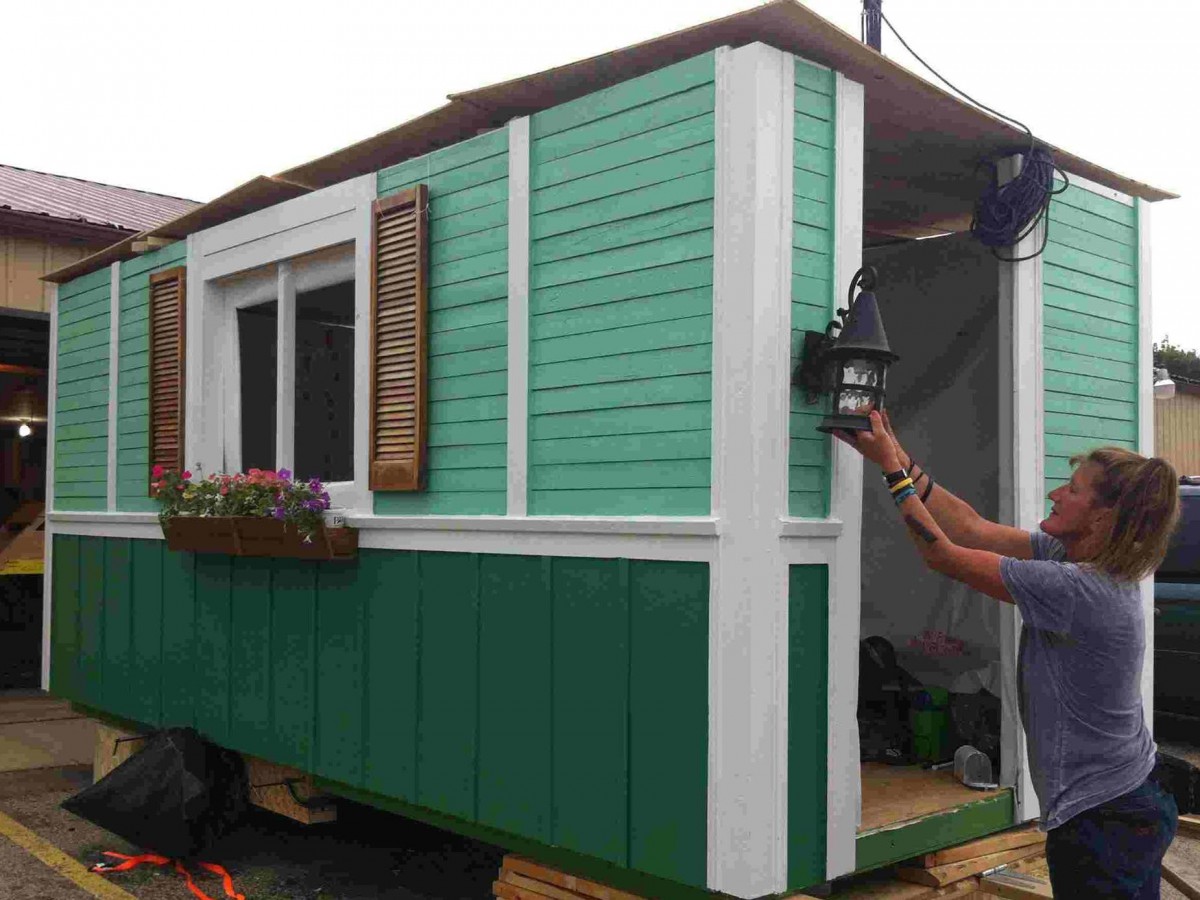
In an attempt to combat the issue of homelessness in the city of Madison, Wis., activists behind Occupy Madison have begun building mini-homes for the more than 3,000 persons in the city who experience homelessness annually. The group says it plans to create an eco-community with homes in a variety of sizes, including one-bedroom homes in the future.
Volunteers are building the 98 square feet homes — which include a bed, a small kitchen equipped with a microwave, a small refrigerator, a compost toilet and heating — all out of a three-car garage.
The homes weigh about 500 pounds each and cost about $4,000 to make. Donations made to Occupy Madison and Occupy Madison (OM) Build will cover rent, utilities and the supplies needed to make the homes.
While most of the funding for the homes has come from philanthropic donations, organizers said the University of Wisconsin – Madison’s engineering department donated a solar electric system for each home, the local fire department donated smoke alarms, and a local artist has offered to create unique pieces of art for each home as well.
According to the organizers, the micro-homes will be built on wheels since the city’s parking requirements prohibit trailers from staying outdoors in the same location for more than 48 hours.
“It’s very difficult to be homeless in Madison within city limits; there is no provision for camping outdoors,” Bruce Wallbaum, a board member of OM Build, Occupy Madison’s nonprofit organization in charge of building the units. “It’s a small home but a very adequate home,” he added. “People are fearful of people living in tents, and I think that a home sort of takes away that fear.”
While the number of homeless people in Madison is much lower than the national average, Marsha Rummel, a city councilwoman who is on the housing committee, said, “Madison clearly has a challenge for housing people.”
In the past year, it’s estimated that more than 3,000 people in the city spent at least one night in a shelter. The low housing vacancy rate has also forced many people to live in cars or sleep in camp sites around the city, which cost about $17 per night.
Brenda Konkel, executive director of Tenants Resource Center, a nonprofit organization that offers local housing counseling, agrees with Rummel and said that the she hoped the micro-homes would help address the city’s housing problem.
“The housing that [the city] is building is just completely unaffordable,” she said, adding that as a result, homeless people are forced to take refuge in temporary housing shelters. Konkel said that once a person’s time runs out at a shelter they return to the streets, where they are subject to police fines. “What we’re trying to do is break that circle,” she said.
The first micro-home is expected to be ready at the end of August or early September and will be parked near the Occupy Madison workshop.
Walbaum added that some local churches have expressed interest in allowing the tiny homes to be set up in their parking lots, but before that can happen the city would have to change its zoning laws. While the homes will have to move every 48 hours as of right now, Walbaum said the group doesn’t plan to have to move dozens of homes every two days.
“We anticipate we might have to move two or three before either land becomes available or the church option becomes available,” he said.
Rummel said she may introduce legislation this fall that would allow churches and nonprofits to accommodate the homes on their property.
The group says it plans to build eight more homes within the next year, and like other Occupy movements throughout the country, wants to create a community for homeless people.
In order to live in one of the homes, Walbaum said, a homeless person goes through an application process, has to start working in the OM Build shop, where they are required to help build the home, “and eventually you reach a point where you’re in line to get a tiny home.”
In a July 2013 OM Build video, a homeless Madison resident named Hap said he was in favor of the micro-home project because people who are homeless are already in the gutter. “You can’t kick us any further. We can’t get any lower. We don’t need you to berate us and hold our hands. We just need your support.”
Caleb, a Madison resident who used to live on the streets, said he was helping with the project because he wants to give back to the people who helped him.
The first home is expected to go to Betty Ybarra and Chris Derrick, a couple who said they have been homeless and living in a tent since May 2012
Derrick said the couple will “have to learn how to live together on just 98 square feet,” but added that he thinks they will be just fine. “We’re a little anxious,” he said, “but also really happy and excited.”


